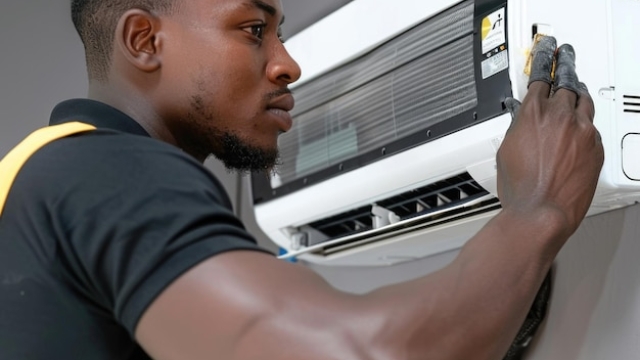
Creating a comfortable living environment in your home hinges on the delicate balance of heating and air conditioning. As seasons change, so too does our need for temperature regulation, making it essential to master the art of climate control. Whether it’s the chilly embrace of winter or the sweltering heat of summer, having effective systems in place can transform your home into a sanctuary of comfort.
Understanding the ins and outs of heating and air conditioning not only enhances your quality of life but also contributes to energy efficiency and cost savings. With the right knowledge, you can tailor your home’s climate to your preferences while ensuring that your systems operate at peak performance. This guide will explore the various options available and provide tips for maintaining a harmonious climate in your living space, no matter what the weather brings.
Choosing the Right System
When it comes to selecting a heating and air conditioning system for your home, several factors come into play. The size and layout of your space are crucial aspects to consider. A system that is too small may struggle to maintain comfortable temperatures, while one that is too large can lead to inefficient operation, causing increased energy costs. It is essential to conduct a load calculation to determine the appropriate capacity needed based on your home’s dimensions, insulation, and climate.
Energy efficiency is another critical factor in your decision-making process. Look for systems that have high SEER (Seasonal Energy Efficiency Ratio) ratings for air conditioning and AFUE (Annual Fuel Utilization Efficiency) ratings for heating systems. These ratings indicate how well a unit converts energy into heating or cooling power. Investing in an energy-efficient system not only reduces your carbon footprint but also leads to significant long-term savings on your utility bills.
Lastly, consider the maintenance and longevity of the system you select. Some units require more frequent upkeep and part replacements, while others are designed for durability and minimal intervention. Research various brands and models, read reviews, and consult with HVAC professionals to find a system that fits your lifestyle and maintenance preferences. Choosing a reliable heating and air conditioning system is key to ensuring year-round comfort in your home.
Energy Efficiency Tips
To maximize energy efficiency in your heating and air conditioning systems, regular maintenance is essential. Ensure that you clean or replace air filters every one to three months, as dirty filters can restrict airflow and make your system work harder, leading to higher energy consumption. Additionally, schedule professional tune-ups at least once a year to keep your system running smoothly and efficiently. To learn more about how to effectively manage your home’s climate control, make sure to Click Here for helpful tips and resources.
Another effective strategy is to utilize programmable thermostats. These devices allow you to set specific temperatures for different times of the day, enabling you to reduce heating or cooling when you are not at home. By adjusting your temperature settings based on your schedule, you can significantly lower energy usage without sacrificing comfort when you are present.
Lastly, sealing and insulating your home can enhance overall efficiency. Check doors and windows for drafts and use weather stripping or caulk to seal gaps. Proper insulation in your walls and attic helps maintain the desired temperature in your home, reducing the workload on your heating and air conditioning systems. By implementing these simple yet effective tips, you can create a comfortable living environment while reducing energy costs.
Maintenance for Longevity
Regular maintenance is essential for ensuring the longevity of your heating and air conditioning systems. Schedule annual inspections with a qualified technician to check for any potential issues. During these visits, professionals will clean components, replace filters, and check refrigerant levels, which helps to maintain efficiency. Neglecting these routine checks can lead to more serious problems that may require costly repairs or replacements.
In addition to professional maintenance, there are simple tasks you can perform yourself to keep your systems running smoothly. For air conditioning units, make sure to clean or replace the air filters every one to three months, depending on usage. Clearing debris from outdoor units and ensuring that vents are not blocked can also improve airflow and efficiency. For heating systems, checking the thermostat settings and keeping vents clear will enhance performance.
Investing time in maintenance not only extends the lifespan of your heating and air conditioning systems but also improves energy efficiency. An efficiently running system consumes less energy, which translates to lower utility bills. By proactively caring for your climate control systems, you foster a comfortable home environment while also being mindful of your energy consumption and overall costs.


